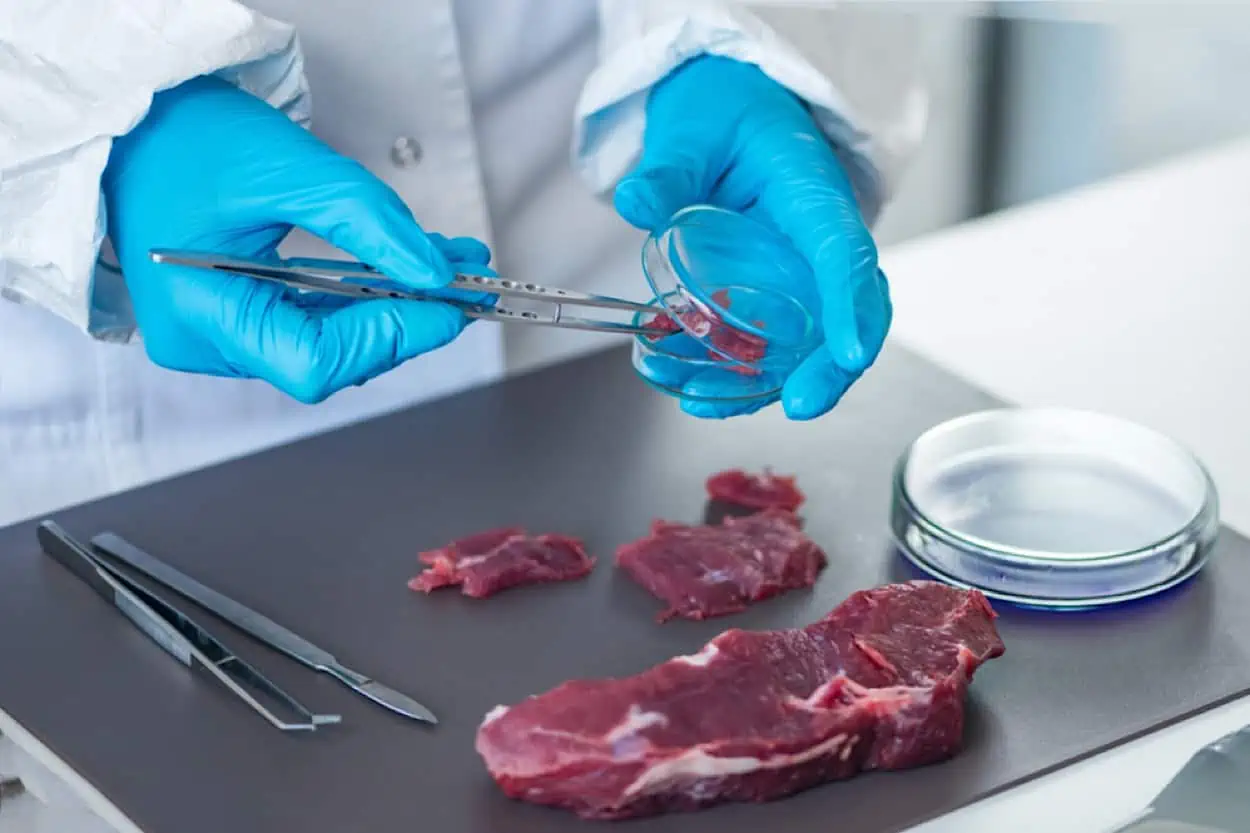
12 Surprising Facts About Food Poisoning
Did you know that an estimated 1 in 6 Americans (translating to 48 million people) get sick every year from food-borne diseases? Around 128,000 of these will end up requiring medical care, and 3,000 will lose their lives.
If the numbers above are higher than you expected, just wait – there are many more things about food poisoning you may not have realized yet.
We spent some time looking for these surprising facts about food poisoning, including that it can cause cancer, chicken is the biggest culprit, and you may be creating a dangerous situation by washing meat or taking antacids.
What is Food Poisoning?
Food poisoning is when food becomes unsafe because toxins, viruses, or bacteria have contaminated it. Such food causes food-borne illnesses.
Australia’s Healthdirect.gov.au notes that certain toxins are found naturally in the food while other contaminants are introduced during the transportation, production, cooking, and storage phases.
Food contamination often results from bad handling and insufficient cooking.
On the other hand, certain foods are naturally poisonous. The publisher of health information, WebMD.com, lists some foods that can be naturally toxic, including two types of deadly mushrooms, the death cap (Amanita phalloides) and the destroying angel (Amanita virosa).
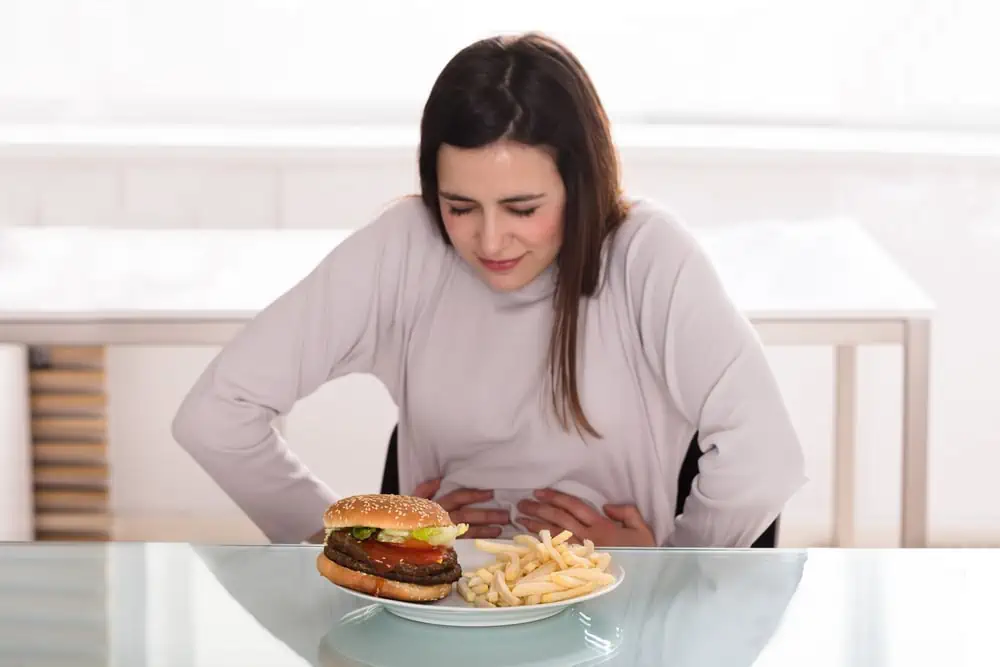
1. Food Poisoning Symptoms Can Take More Than 3 Weeks to Appear
Even though symptoms of food poisoning can begin soon after eating the offending food, they could also take three weeks to show and, in some instances like Listeria, 70 days.
MayoClinic.org, the nonprofit academic medical center, lists some of the most common symptoms of food poisoning:
- Nausea
- Vomiting
- Bloody or watery diarrhea
- Abdominal cramps and pain
- Fever
Even though food poisoning usually resolves itself within a few hours or days, MayoClinic.org advises that you should consult a doctor if your diarrhea lasts more than three days, your stools and vomit become bloody, or you’re vomiting to the extent that you are no longer able to keep liquids down.
2. Dehydration is one of the Most Common Food Poisoning Complications
But how is dehydration related to food poisoning? The National Institute of Diabetes and Digestive and Kidney Diseases has the answer: Dehydration is triggered because food poisoning often causes diarrhea and vomiting, which deplete body fluids.
According to MedicalNewsToday.com, another complication caused by food poisoning is gastroenteritis. The same source defines gastroenteritis as “a condition involving inflammation of the lining of the gut – in particular, of the stomach and intestines.”
3. Food Poisoning is A Coward, Targeting the Weak
Food poisoning seems to primarily target those whose ability to fight germs and sickness is compromised.
The CDC reports that young children under five and adults over 65 are adversely affected by food poisoning because they have a weakened immune system.
However, food poisoning is still quite common among the greater population. The numbers cited by the WHO support this view:
- Around 600 million people fall ill after eating contaminated food, and 420,000 die yearly.
In low-income countries, US$110 billion is lost annually in medical expenses and lost productivity as a result of unsafe food.

4. Food Poisoning Can Cause Cancer
If you don’t take food poisoning seriously, maybe you should because it can cause cancer.
The WHO confirmed this reality: “Food-borne illnesses are usually infectious or toxic in nature and caused by bacteria, viruses, parasites or chemical substances entering the body through contaminated food. Chemical contamination can lead to acute poisoning or long-term diseases, such as cancer.”
The WHO puts the number of diseases caused by unsafe food containing harmful bacteria, chemical substances, parasites, and viruses at more than 200.
5. Cross-Contamination Drives Food Poisoning
A process known as cross-contamination is the most common way through which food becomes unsafe.
HealthLine.com defines cross-contamination as the transfer of food allergens, toxins, or chemicals from one food to the next.
The best way to avoid cross-contamination is to ensure that foods that are consumed raw, such as fruit, are never allowed to come into contact with raw foods like meat.
6. Chicken is the Biggest Food Poisoning Culprit
When it comes to food poisoning, not all foods are created equal. Chicken is the biggest offender. The CDC says this type of meat is often contaminated by salmonella, which “… causes more food-borne illnesses than any other bacteria.”
Other than chicken, there is a host of foods you need to watch out for. The website that caters to seniors, AARP.org, lists some of them:
- Beef, pork, and turkey:the most prominent risks from these meats are cross-contamination and undercooking.
- Fruits and vegetables:can get contaminated as they travel from the farm to the home.
- Raw milk and cheese products:lead to food poisoning, especially if the milk is unpasteurized.
- Eggs:can be contaminated by salmonella from the chicken laying them.
- Seafood and raw shellfish:parasites in uncooked or undercooked fish can lead to illness.
Raw flour: often comes with contaminants from the field or the production process. However, the germs are killed if the flour is cooked to the right temperature.
7. Put Down the Antacid – Stomach Acid Helps Protect You from Food Poisoning
Stomach acid plays an essential role in digestion. Healthline.com confirms this, “Your stomach’s job is to help digest the food you eat. One way that it does this is through the use of stomach acid, also known as gastric acid.”
Even though high stomach acid levels are not good for you, using antacids in moderation is vital when trying to reduce these levels.
In this regard, AARP.org warns, “Even otherwise healthy older adults who take stomach-acid reducers may be creating a dangerous situation for themselves.”
8. Avoiding Food Poisoning is Easy
The great news about food poisoning is that it can be avoided easily if you handle food with care and ensure that it’s cooked to the right temperature.
MedlinePlus.gov, a service of the United States National Library of Medicine, lists some tips on how to avoid food poisoning:
- Wash your hands before and after touching raw meat.
- Clean dishes that have had contact with raw meat.
- Use a thermometerwhen cooking.
- Place all leftover perishable food in the fridge within two hours after cooking.
- Cook frozen food for the duration recommended by the manufacturer.
Do not eat foods with an unusual taste or odor.
9. Food Thermometer: The Most Effective Weapon Against Food Poisoning
One sure way of ensuring that you end up sick from food poisoning is to eat food that is not adequately cooked. But how do I know that my food is not undercooked? The most effective way is to use a meat thermometer.
Joyce McGarry writes for Michigan University Extension’s Safe Food & Water website. She explains why using a food thermometer is wise: “Cooking foods to their correct, safe temperatures will destroy the pathogenic microorganisms that can cause food-borne illness.”
McGarry adds, “A food thermometer is considered one of the most important tools in controlling bacteria, such as E. coli, salmonella, and listeria.”
10. Your Tupperware Could Save You From Cancer
We have already learned that food poisoning can cause cancer and that we should place perishable leftovers in the fridge within two hours of cooking. This means that placing your food in the fridge in an airtight Tupperware container could help you prevent contamination, which could, in turn, help prevent diseases like cancer.
However, to ensure that your food is cool enough to be placed in the fridge within two hours of cooking, you will need to follow the advice of the Academy of Nutrition and Dietetics: store the food in shallow airtight containers.
The smaller containers ensure that the food cools down rapidly so you can store it in the refrigerator or freezer as quickly as possible. If you put food in a big container, it takes longer to cool down, which allows bacteria to grow.
11. Washing Meat Is a Bad Idea
Do you wash your meat before cooking it? If you do, you may need to reconsider. The Academy of Nutrition and Dietetics suggests that there is no benefit in washing meat and poultry.
The organization says, “In fact, if you think you’re removing bacteria from meat and poultry by washing it, you actually might be allowing germs to spread to other ready-to-eat foods and causing cross-contamination in the process.”
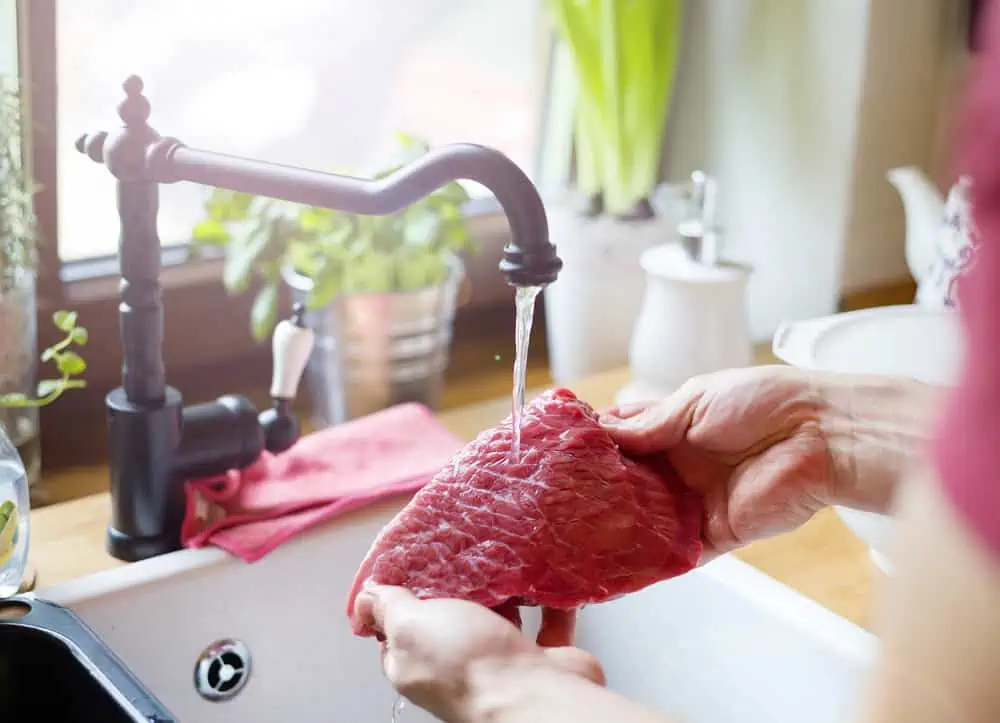
12. Your Senses Could Mislead You
How often do you open the fridge, get something out of it, smell it and make an instant decision about whether the food is safe to eat or not? Common as it is, this method of determining whether food is safe or not is not the most effective.
The best way to ensure that consuming any food does not lead to food poisoning is to cook it to the right temperature, eat or refrigerate it within two hours of cooking, and eat the refrigerated food within two or three days.
2 Comments
Leave A Comment
Discover more recipes and learn kitchen tricks by joining our cooking family on Facebook.
Shop now for products used in this post:
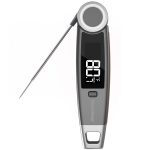


You may also like:
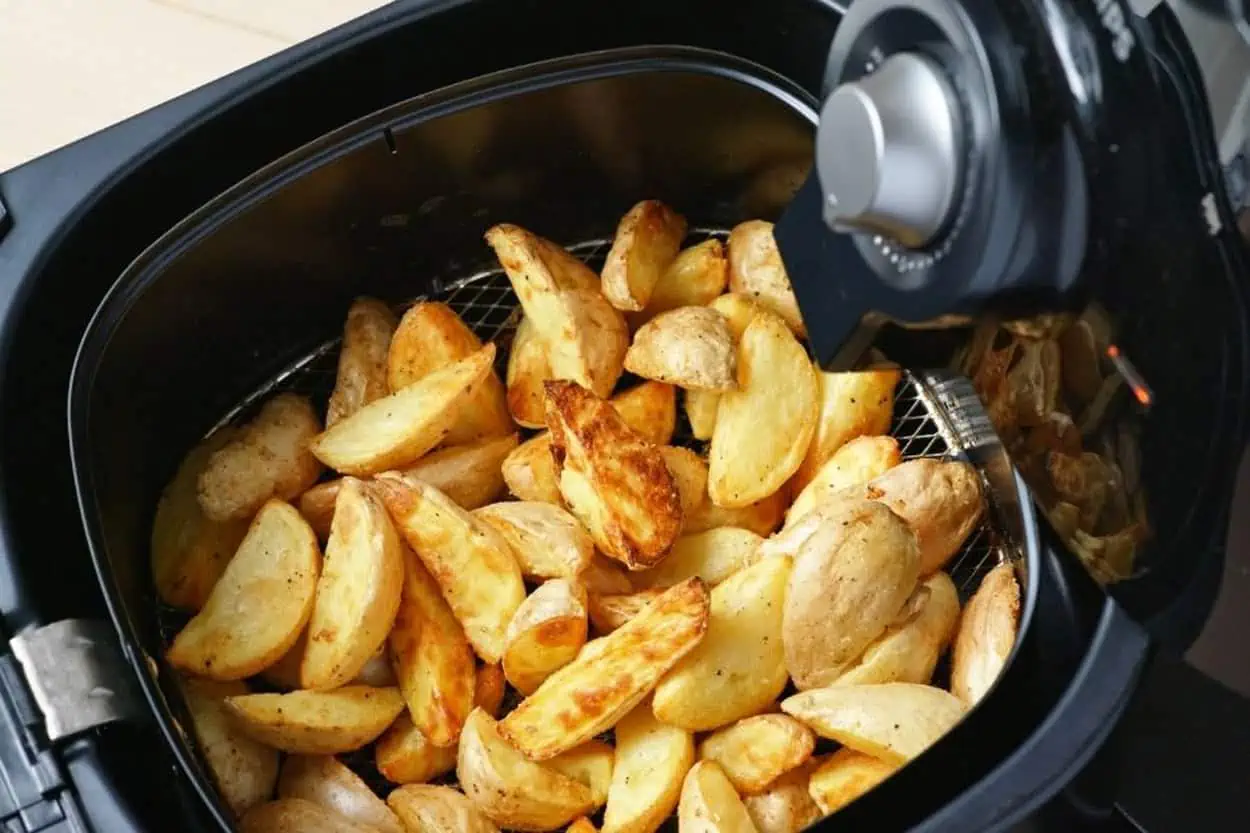
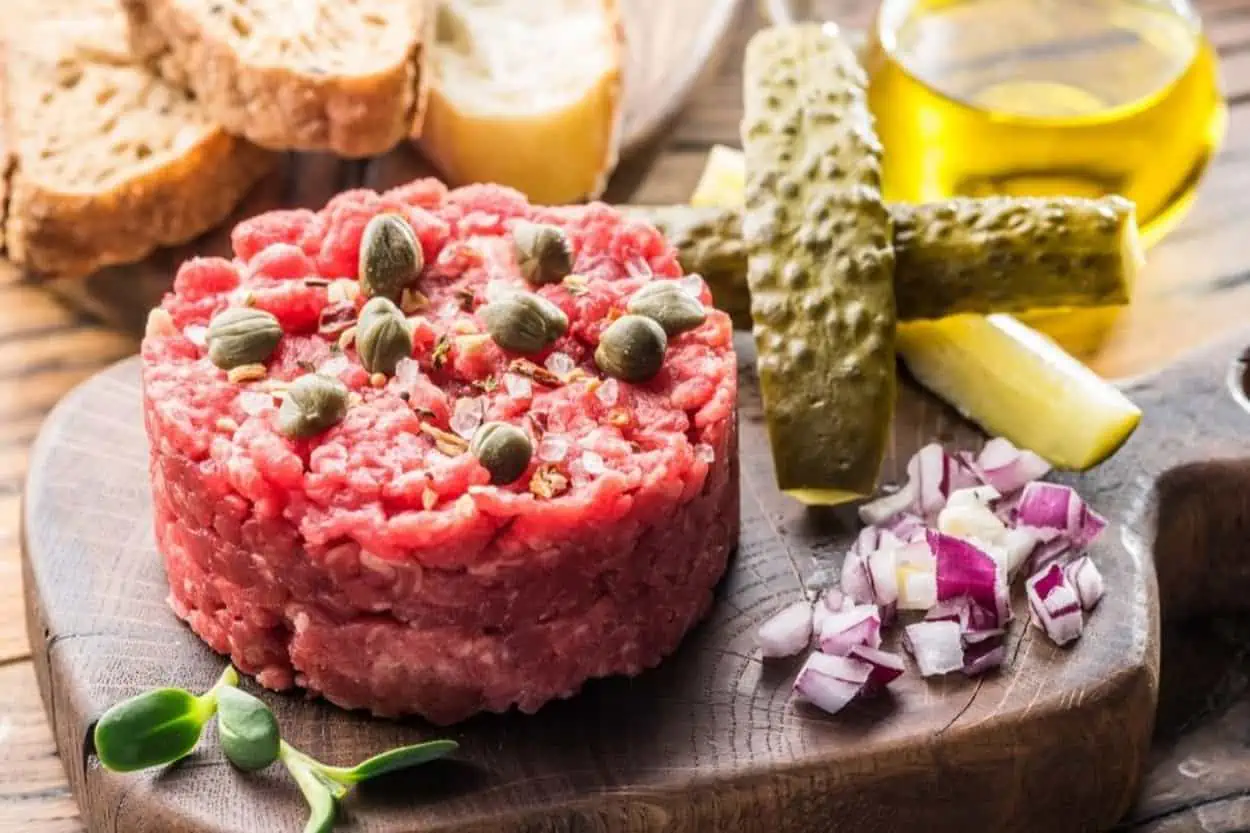

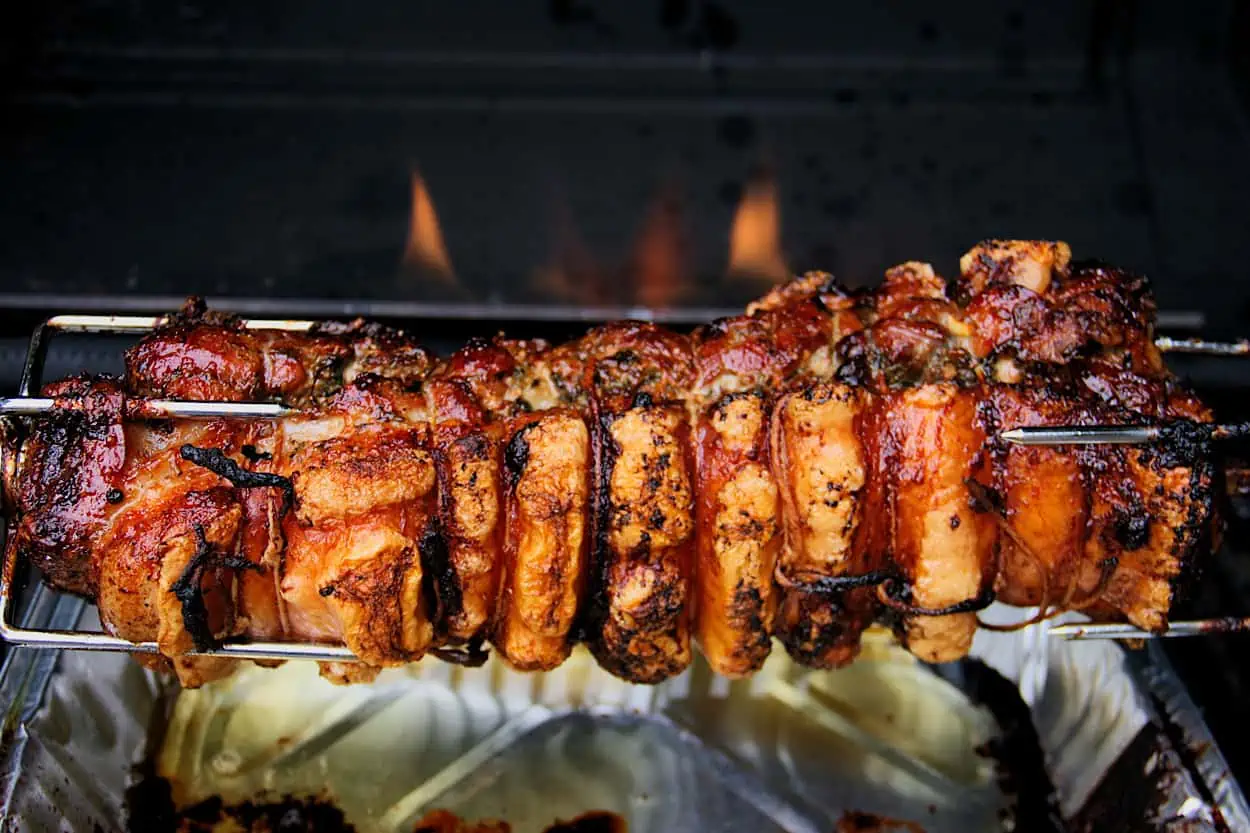

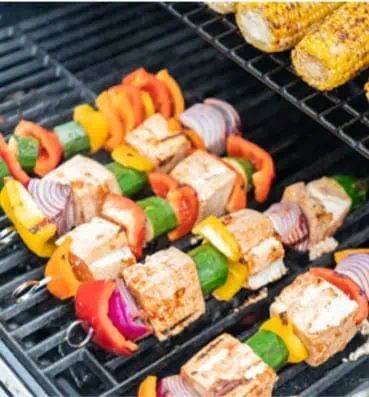

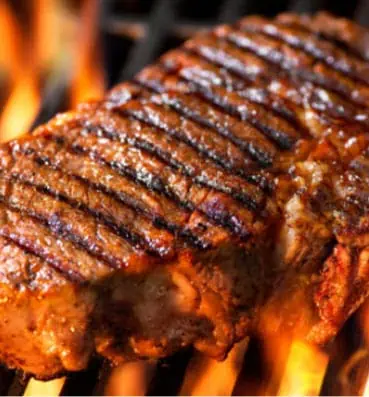




[…] and could suffer from food poisoning. It is not just by consuming the chicken that you could be at risk of food poisoning. It can also happen as a result of cross-contamination, such as when the bacteria are spread to […]
[…] (or anything with uncooked eggs or uncooked flour) is contaminated with harmful bacteria that can result in food poisoning such as salmonella […]